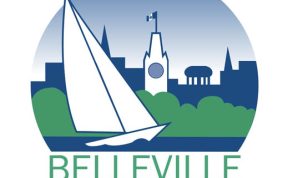Lower Trent Conservation (LTC) is thrilled to announce the launch of a groundbreaking pilot project aimed at preserving and enhancing the health of our waterways within the watershed. With generous support, from ECO Canada Science Horizons Youth Internship Program, Grassroots Conservation Fund, and Ontario Federation of Anglers and Hunters (OFAH) Community Conservation Fund, we are now ready to launch a 6-month initiative that will develop our understanding and management of the watershed’s aquatic habitats, focusing on the vital Brook Trout population.
The project aims to characterize 110 sampling locations across 11 subwatersheds within the LTC watershed, a crucial region at the downstream end of the Trent-Severn Waterway. This expansive area includes the Kawartha Lakes and spans over 2,070 square kilometers, from Alnwick/Haldimand in the west to the City of Quinte West in the east. By collecting data on water quality and habitat, and utilizing innovative underwater video technology, the aim is to fill critical knowledge gaps and enable evidence-based conservation strategies.
“Currently, there’s limited data available about the waterways within the LTC watershed,” Massimo Narini, Watershed Services Specialist says, “Understanding the health of these watercourses, especially the habitats of cold-water fish like Brook Trout, is essential for effective conservation. This project will give us the opportunity to gather invaluable baseline information, improve our understanding of keystone species’ habitats, and engage with local stakeholders to build a robust conservation network.”
The project is based on the emerging body of scientific research that has shown using underwater video can be an inexpensive alternative to traditional fish sampling methods. In addition, collecting data on critical water quality parameters such as dissolved oxygen, water temperature, turbidity, pH, and conductivity—all essential for the Brook Trout’s life stages, is important to identify potential spawning habitat.
The data collected will improve LTCs understanding of important fisheries resources across the watershed, what areas are important for both conservation and directed stewardship projects for restoration and will provide stakeholders information about the watershed and its overall health.
Together, we can ensure a sustainable future for the Lower Trent Conservation watershed. For more information, to offer support, or to get involved, please contact us the office.




















